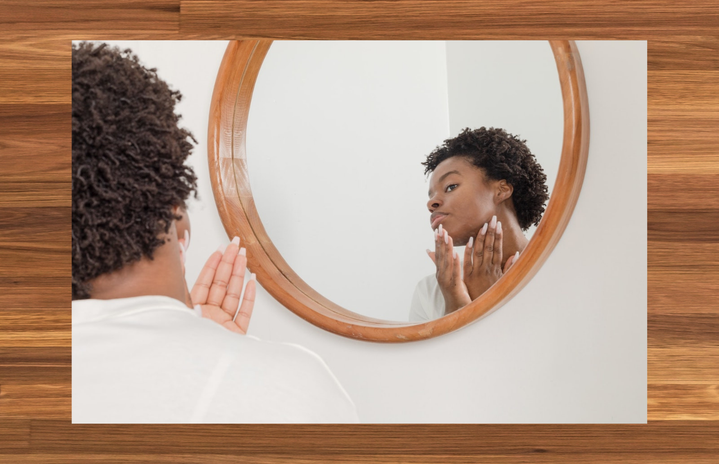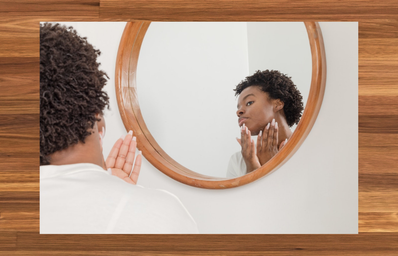Have you ever scrolled through Instagram, paused on images of toned, curvy women, and felt a slight sting in your chest? Have you ever sat on the beach and buried yourself in a towel to prevent judgmental eyes from wandering over your vulnerable body? Have you ever stared at strangers—strangers that seem so ideal, so beautiful, so comfortable—and felt like a stranger to yourself? Have you ever looked in the mirror and had your reflection whisper back at you “You are not enough”?
If you answered ‘yes’ to any of these questions, you are not alone. A study conducted in 2016 among South Africans aged 15 and up found that almost 85% of participants had a distorted body image. It is a common insecurity. Likewise, with the media constantly stating what is and isn’t considered beautiful, there is always an unrealistic standard for one to compare themselves to.
I recently binge-watched a series I found on Showmax, “The Sex Lives of College Girls.” The series follows four college students who end up as roommates and the challenges they face as they are inducted into this next pivotal phase of their lives. In the second season, I noticed that one of the actresses, Pauline Chalamet, who plays Kimberley in the show, had undergone a significant weight loss. I wasn’t sure if it was a personal preference, an illness, or something of the like, so I did some research out of curiosity. To say the very least, I wish I hadn’t. In one article, they described her in season one as “a bit overweight and sulky” and how she “had this slightly plumpy look.” They describe it as “her amazing weight loss transformation” and how “her sharp jawline has created awe and admiration in her fans.” There were a number of articles using similar language that reflected similar opinions.
Advertising is another massive contributor to a specific body ideal. One of the strategies used is to make one feel insecure so that they believe they need that certain product. We see these beautiful women with slim bodies dancing in the rain with perfect, clear skin, and we long for such a radiantappearance. While we may be aware that it is not real, subconsciously, the repetition of this constructed image of an “ideal woman” or “ideal man” gets imprinted in our minds.
Just take a quick look on any social media site; the majority of what you see is women or men posing to create the most aesthetic display of their abs and curves. I searched “aesthetic body” on Pinterest, and all I get is different versions of Kendall Jenner. If “aesthetic” is limited to that one body type, it excludes the majority. How many people do you personally know who feel the need to go on a diet, invest in a gym, or lift heavier weights? More importantly, how many of those people are currently satisfied with their appearance? Exercise and healthy eating are indeed beneficial for one’s health, but they should not be to the detriment of one’s happiness.
I am currently following a bodybuilder on Instagram, Leanbeefpatty. She has a clearly muscular body, but she is also transparent about her struggles and how her body has changed dramatically throughout her life. Yet she says that no phase of her transformation was more beautiful than the next. Someone asked her in a Q&A on her story, “Do you think you’re shredded?” She responded: “Happiness is a state of mind, not a state of muscle.” There is an increasing inclusion of all body types in the media, and we are seeing improvements in this regard. However, there is much distance left to cover. Changing images is one thing; altering people’s ingrained beliefs about the perfect physique is quite another.
So, is the mirror lying to you? Is it the mirror telling you you’re not enough? No, it’s society’s expectations that have brainwashed us all into such a self-degrading inner monologue. Not one body is exactly the same as another; it’s like comparing an apple to an orange. However, we still do it. The only way to overcome this epidemic of self-hatred is to practice self-love. Confidence is the most attractive quality and is the biggest superpower in showing a middle finger to society’s ideals, no matter how you look. As long as one is healthy and takes care of themselves, what it took to get them there and what that looks like for them isn’t that simple. So next time you look in the mirror, say to your reflection, “I love you,” and see how the world around you changes.

